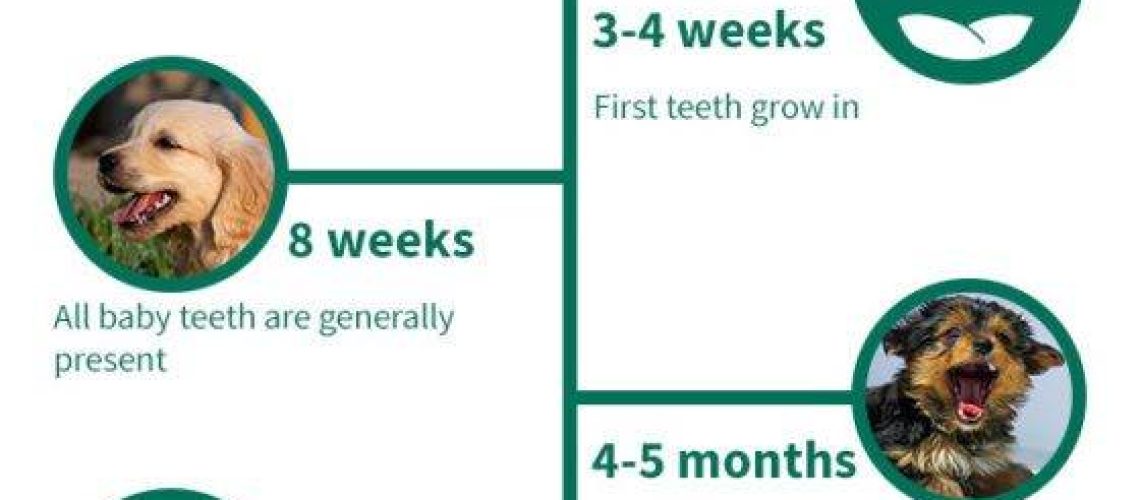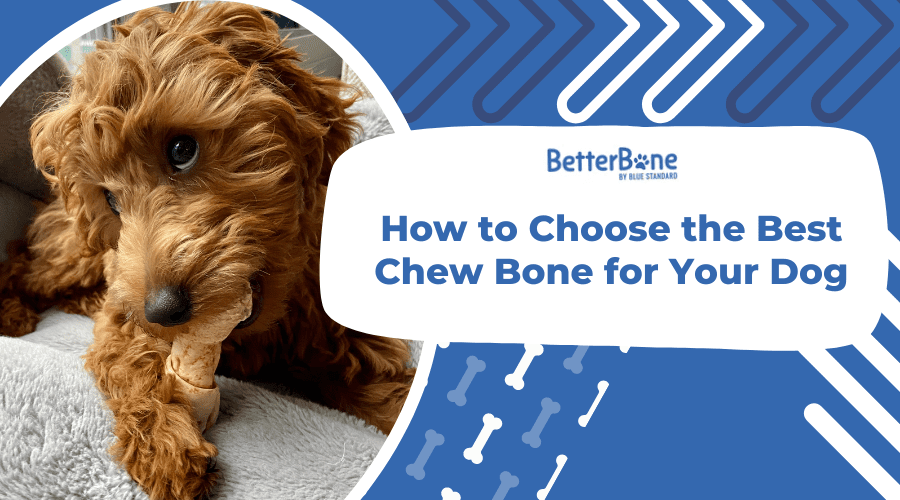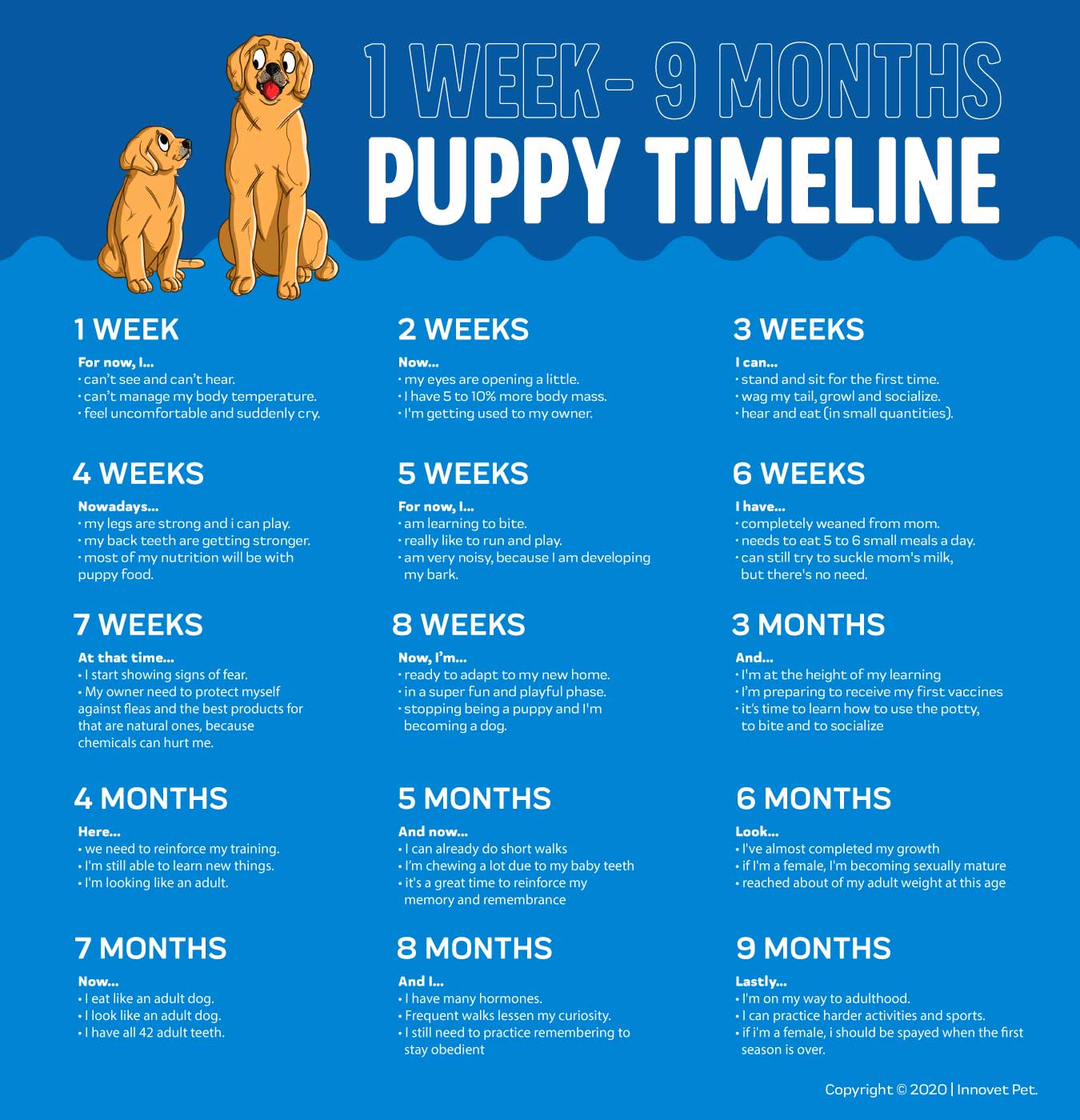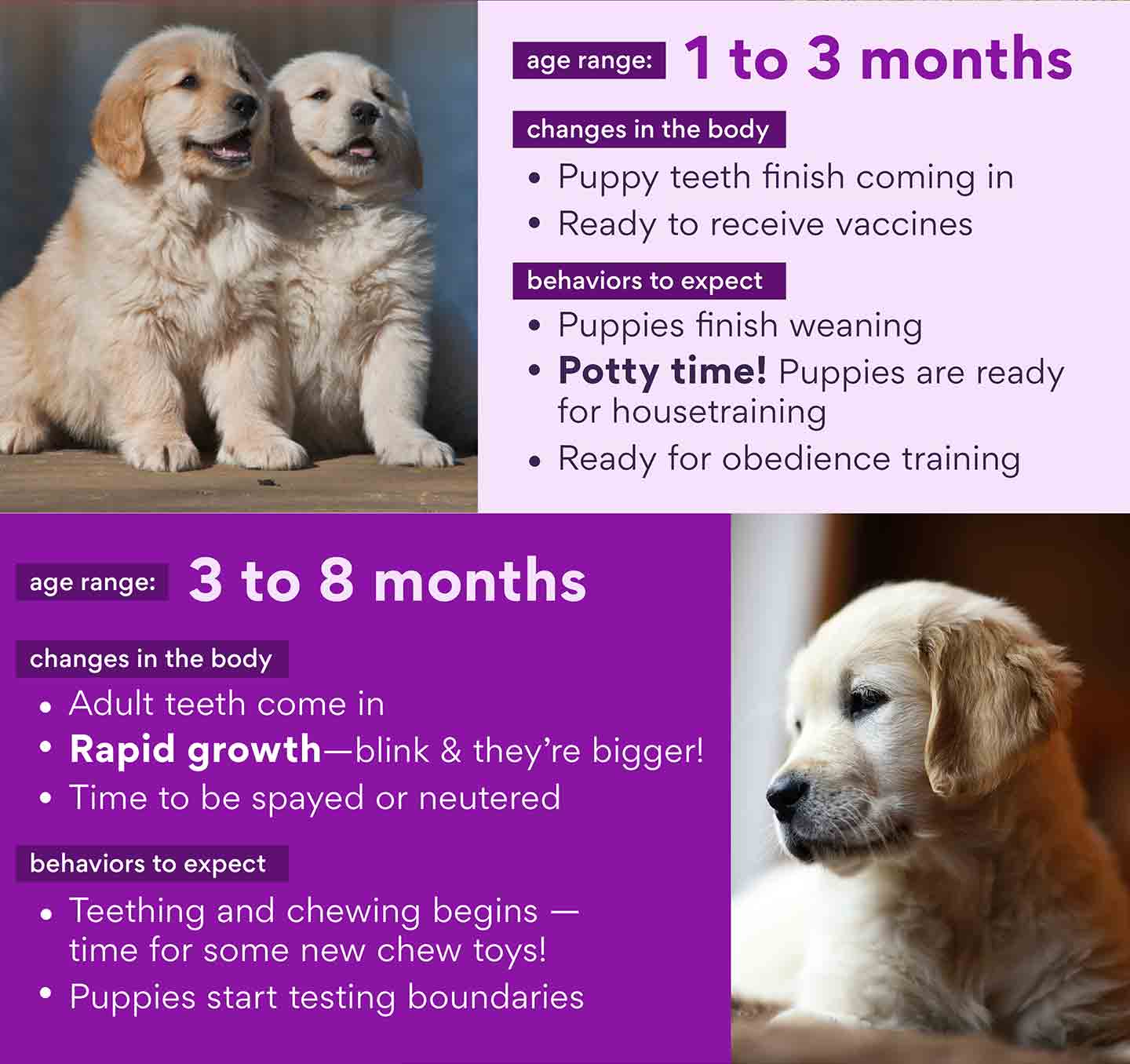If you're a new puppy owner, understanding the teething timeline is crucial. In this guide, we'll walk you through what to expect during your puppy's teething stage.
Key Takeaways:
- Puppies typically start teething around 3-4 months of age.
- The teething process can last for several months, with the most intense period occurring around 4-6 months.
- During teething, puppies may experience discomfort and pain, leading to increased chewing behavior.
- Providing appropriate chew toys and regular dental care can help alleviate teething discomfort and prevent destructive chewing.
- Teething should not be confused with aggressive behavior; it is a normal and necessary part of a puppy's development.
When do puppies start teething?
The start of the teething process
Puppies usually start teething when they are around 3 to 4 months old. This is the time when their baby teeth, also known as deciduous teeth, begin to fall out and are replaced by their permanent adult teeth. The teething process can be uncomfortable for puppies, and they may experience some discomfort or pain during this time.
What happens during teething?
During the teething process, you may notice that your puppy starts chewing on everything in sight. This is because chewing helps to relieve the discomfort in their gums caused by the new teeth pushing through. You may also see some drooling or bleeding gums during this stage.
Tips for managing teething
- Provide your puppy with appropriate chew toys to redirect their chewing behavior.
- Freeze a wet washcloth or a toy for your puppy to chew on. The coldness can help soothe their sore gums.
- Avoid giving your puppy hard or sharp objects to chew on, as these can damage their teeth.
Signs that a puppy is teething
Common signs of teething
There are several signs that indicate your puppy is going through the teething process:
- Increased chewing behavior: Your puppy may chew on anything they can find to alleviate the discomfort in their gums.
- Drooling: Teething puppies may drool more than usual due to increased saliva production.
- Bleeding gums: You may notice some slight bleeding from your puppy's gums as their baby teeth fall out and their adult teeth come in.
- Change in appetite: Some puppies may experience a temporary decrease in appetite during teething.
How to help your puppy through teething
If you notice that your puppy is teething, there are a few things you can do to help them through this stage:
- Provide appropriate chew toys: Giving your puppy safe and durable chew toys can redirect their chewing behavior away from household items.
- Use cold objects: You can freeze a wet washcloth or a toy for your puppy to chew on. The coldness can help numb their gums and provide relief.
- Maintain regular dental hygiene: Even though your puppy is teething, it's important to continue brushing their teeth regularly. This helps prevent any buildup of plaque or tartar.
How long does the teething process last for puppies?
The teething process for puppies typically begins around 3 to 4 months of age and can last until they are about 6 to 8 months old. During this time, your puppy's baby teeth will start to fall out and be replaced by their permanent adult teeth. This process can be uncomfortable for your puppy, as their gums may become sore and they may experience increased drooling or chewing behavior.
It is important to provide appropriate chew toys and treats during this stage to help alleviate their discomfort and prevent them from chewing on inappropriate items. Additionally, regular dental care should be implemented to ensure the health of their new adult teeth.
Signs of teething in puppies:
- Increased chewing behavior
- Drooling
- Irritability or restlessness
- Bleeding or swollen gums
- Loss of appetite
Tips for soothing a teething puppy:
- Provide appropriate chew toys made specifically for teething puppies.
- Freeze wet washcloths or rubber toys to offer relief to sore gums.
- Offer frozen fruits or vegetables, such as carrots or apples, as a natural teething aid.
- Avoid giving your puppy hard bones or objects that could damage their teeth.
- Consult with your veterinarian about using over-the-counter pain relievers or gels designed for teething puppies if necessary.
Ways to soothe your puppy's teething discomfort
The teething stage can be uncomfortable for puppies, but there are several ways you can help soothe their discomfort and make the process easier for them. Providing appropriate chew toys and treats is essential during this time, as it allows your puppy to satisfy their natural urge to chew while also relieving their sore gums.
One effective method is to freeze wet washcloths or rubber toys and offer them to your puppy. The cold temperature can provide relief to their inflamed gums. You can also try offering frozen fruits or vegetables, such as carrots or apples, as a natural teething aid.
It's important to avoid giving your puppy hard bones or objects that could potentially damage their teeth. Instead, opt for softer toys specifically designed for teething puppies. Consulting with your veterinarian about using over-the-counter pain relievers or gels designed for teething puppies may also be an option if your puppy is experiencing significant discomfort.
Tips for soothing a teething puppy:
- Provide appropriate chew toys made specifically for teething puppies.
- Freeze wet washcloths or rubber toys to offer relief to sore gums.
- Offer frozen fruits or vegetables, such as carrots or apples, as a natural teething aid.
- Avoid giving your puppy hard bones or objects that could damage their teeth.
- Consult with your veterinarian about using over-the-counter pain relievers or gels designed for teething puppies if necessary.
Safe toys and treats for teething puppies
During the teething stage, it's crucial to provide safe and appropriate toys and treats for your puppy. This not only helps alleviate their discomfort but also prevents them from chewing on household items that could pose a danger to their health. Look for chew toys specifically designed for teething puppies, as they are made with softer materials that are gentle on their gums.
Rubber toys or toys with textured surfaces can provide additional relief to your puppy's sore gums. It's important to avoid giving them hard bones or objects that could potentially damage their teeth. Opt for toys that are durable and free from small parts that could be swallowed.
When it comes to treats, choose options that are specifically formulated for teething puppies. Soft treats or dental chews can help promote healthy chewing habits while also providing some relief to their gums. Always supervise your puppy while they are chewing on toys or treats to ensure they do not swallow any large pieces or choke.
Safe chew toy options for teething puppies:
- Rubber chew toys
- Textured chew toys
- Kong toys filled with frozen peanut butter or yogurt
- Rope toys
Safe treat options for teething puppies:
- Soft treats specifically formulated for teething puppies
- Dental chews made with safe ingredients
- Frozen fruits or vegetables, such as carrots or apples (always monitor your puppy while they enjoy these treats)
Possible health issues during the teething stage in puppies
The teething stage in puppies can sometimes come with potential health issues that pet owners should be aware of. One common issue is gum inflammation, which can cause discomfort and pain for the puppy. This may result in increased drooling, irritability, and loss of appetite.
In some cases, the baby teeth may not fall out properly, leading to retained deciduous teeth. This can cause overcrowding and misalignment of the permanent teeth. If you notice that your puppy's baby teeth are not falling out as their adult teeth come in, it is important to consult with your veterinarian for proper evaluation and potential extraction of the retained teeth.
Another health concern during teething is the risk of dental fractures. Puppies' new adult teeth are still developing and may be more susceptible to damage. Avoid giving them hard objects or bones that could potentially cause dental fractures.
Signs of potential health issues during teething:
- Persistent bleeding or swollen gums
- Difficulty eating or loss of appetite
- Visible retained baby teeth when adult teeth have already erupted
- Pain or discomfort while chewing
- Excessive drooling
Tips for addressing potential health issues during teething:
- Schedule regular veterinary check-ups to monitor your puppy's dental development.
- If you suspect retained deciduous teeth, consult with your veterinarian for appropriate treatment options.
- Avoid giving your puppy hard objects or bones that could potentially cause dental fractures.
- Monitor your puppy's eating habits and seek veterinary attention if they show signs of pain or difficulty eating.
When do puppies typically lose their baby teeth?
Puppies typically start losing their baby teeth around 4 to 6 months of age. The process starts with the incisors, followed by the canine teeth, premolars, and finally the molars. By the time they reach 6 to 8 months old, most puppies will have all their permanent adult teeth fully erupted.
The timeline for puppy tooth loss:
- Incisors: Start falling out around 4 months of age
- Canine teeth: Begin to shed around 4 to 5 months of age
- Premolars: Usually start falling out between 4 to 6 months of age
- Molars: Typically shed between 5 to 7 months of age
Tips for managing puppy tooth loss:
- Provide appropriate chew toys and treats to help ease discomfort during the teething process.
- Avoid pulling or forcing out loose baby teeth, as they should fall out naturally.
- If a baby tooth does not fall out on its own after the adult tooth has fully erupted, consult with your veterinarian for proper evaluation and potential extraction.
- Continue practicing good dental hygiene by brushing your puppy's teeth regularly once their adult teeth have fully grown in.
Puppies chewing on household items while teething: Is it normal?
It is normal for puppies to chew on household items while they are teething. The discomfort caused by their erupting adult teeth can lead them to seek relief through chewing. However, it is important to redirect this behavior towards appropriate chew toys and discourage them from damaging valuable or dangerous objects in your home.
Tips for managing inappropriate chewing behavior:
- Provide a variety of safe and appropriate chew toys for your puppy.
- Supervise your puppy closely and redirect their attention whenever you catch them chewing on inappropriate items.
- Use positive reinforcement techniques, such as praise or treats, when they choose to chew on their toys instead of household items.
- Make sure your puppy has plenty of physical and mental stimulation to prevent boredom, which can contribute to destructive chewing behavior.
- Consider using bitter-tasting sprays or deterrents on household items to discourage your puppy from chewing on them.
Caring for your puppy's teeth during the teething timeline
Caring for your puppy's teeth during the teething timeline is crucial for their long-term dental health. Regular dental care should be implemented once their adult teeth have fully erupted to prevent dental issues such as plaque buildup, gum disease, and tooth decay.
Start by introducing your puppy to tooth brushing gradually. Use a soft-bristled toothbrush or finger brush specifically designed for dogs and a dog-friendly toothpaste. Brush their teeth gently in circular motions, focusing on the outer surfaces of the teeth. Aim to brush their teeth at least 2-3 times a week, if not daily.
In addition to regular brushing, consider providing dental treats or toys that help promote good oral hygiene. These products are designed to reduce plaque and tartar buildup while also providing entertainment for your puppy.
Tips for caring for your puppy's teeth:
- Introduce tooth brushing gradually and use dog-friendly toothpaste and brushes.
- Brush their teeth gently in circular motions, focusing on the outer surfaces of the teeth.
- Aim to brush their teeth at least 2-3 times a week, if not daily.
- Provide dental treats or toys that help reduce plaque and tartar buildup.
- Schedule regular veterinary check-ups that include dental examinations and cleanings if necessary.
| Stage | Age | Teething Symptoms |
|---|---|---|
| Stage 1: Incisors | 2-4 months | Mild discomfort, chewing, drooling |
| Stage 2: Canines | 4-6 months | Increased chewing, swollen gums, irritability |
| Stage 3: Premolars | 5-7 months | Persistent chewing, bleeding gums, loss of appetite |
Remember to provide appropriate teething toys
What is the most painful puppy teething stage?During the period from the twelfth week to the sixth month, your dog will experience the most discomfort. They will start chewing on anything they can find to soothe their teething pain. How long does the worst of puppy teething last?When do puppies finish teething? By the time a puppy is around 6 to 7 months old, they should have all their 42 adult teeth and should no longer be in the teething phase. However, both the puppy and the owner can expect a period of 4 to 5 months of intense teething. What are the stages of puppy teething?Puppies go through different stages of teething. From two to four weeks old, their incisors start to come in, followed by premolars, molars, and canines. Between five to eight weeks, all 28 baby teeth fully emerge, and they begin to fall out around 12 weeks. From twelve to sixteen weeks, their adult teeth come in and replace the milk teeth. This process usually occurs around January 21, 2022. How do I know if my puppy is in pain from teething?The gums become swollen and sensitive to touch right before a tooth comes out. These observations are similar to what is seen in children. Children may chew on their fingers and drool a lot. Other signs include biting lips and objects, being irritable and restless, and crying at night. How can I soothe my teething puppy?You can try using frozen fruit like strawberries or pieces of banana to help soothe oral discomfort. The fruit is safe to eat, although it may create some messiness. Additionally, providing puppy-specific toys like a Chilly Bone or Kong that can be frozen can also be helpful. What is the second stage of puppy teething?At approximately 5 months of age, puppies develop their adult teeth, leading to a second phase of teething that can last for about one year. During this period, dogs may engage in more destructive chewing if preventive measures are not taken.
More Reads
Dr. Clara Bennett
Hello, fellow pet enthusiasts! I'm Dr. Clara Bennett, your go-to expert on all things pets. With a background in veterinary medicine and a passion for nutrition, I've spent years diving deep into the world of cats, dogs, birds, horses, and the products that keep them thriving. From the English countryside, I've witnessed the magic of animals and am here to share my knowledge, ensuring your pets receive the best care. Together, let's master the art of pet care!
All Posts »
Next Steps In Mastering Cat CareNext Steps In Mastering Dog CareJoin Our NewsletterSubscribe to receive our latest updates in your inbox! | ||
















